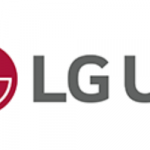UCI scientists turn a hydrogen molecule into a quantum sensor

(UCI.edu) Physicists at the University of California, Irvine have demonstrated the use of a hydrogen molecule as a quantum sensor in a terahertz laser-equipped scanning tunneling microscope, a technique that can measure the chemical properties of materials at unprecedented time and spatial resolutions. IQT-News shares the announcement below.
This new technique can also be applied to analysis of two-dimensional materials which have the potential to play a role in advanced energy systems, electronics and quantum computers. This project represents an advance in both the measurement technique and the scientific question the approach allowed us to explore,” said co-author Wilson Ho, Bren Professor of physics & astronomy and chemistry. “A quantum microscope that relies on probing the coherent superposition of states in a two-level system is much more sensitive than existing instruments that are not based on this quantum physics principle.”
The researchers in UCI’s Department of Physics & Astronomy and Department of Chemistry positioned two bound atoms of hydrogen in between the silver tip of the STM and a sample composed of a flat copper surface arrayed with small islands of copper nitride. With pulses of the laser lasting trillionths of a second, the scientists were able to excite the hydrogen molecule and detect changes in its quantum states at cryogenic temperatures and in the ultrahigh vacuum environment of the instrument, rendering atomic-scale, time-lapsed images of the sample.
The ability to characterize materials at this level of detail based on hydrogen’s quantum coherence can be of great use in the science and engineering of catalysts, since their functioning often depends on surface imperfections at the scale of single atoms, according to Ho.
“As long as hydrogen can be adsorbed onto a material, in principle, you can use hydrogen as a sensor to characterize the material itself through observations of their electrostatic field distribution,” said study lead author Likun Wang, UCI graduate student in physics & astronomy.
<https://ps.uci.edu/news/2656>
Sandra K. Helsel, Ph.D. has been researching and reporting on frontier technologies since 1990. She has her Ph.D. from the University of Arizona.



















